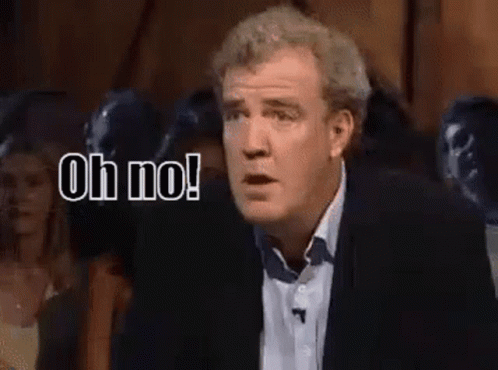-
Dragi članovi, prochitajte OVU vest u vezi nove teme!
-
 Molimo vas sve da pročitate PRAVILA FORUMA i da se istih pridržavate.
Molimo vas sve da pročitate PRAVILA FORUMA i da se istih pridržavate. -
Secret Level Discord server je LIVE! Za više informacija kliknite OVDE
You are using an out of date browser. It may not display this or other websites correctly.
You should upgrade or use an alternative browser.
You should upgrade or use an alternative browser.
Маск купио Твитер
- Thread starter Nezaborav
- Start date
FraX
Well-known member
- Messages
- 140
- Reaction score
- 310
- Points
- 123
Nedavno sam procitao "It Can't Happen Here" i ovo je prigodan citat za ovog idiota:
-Sinclair Lewis, 1935
But there the revolt halted, because in the America, which had so warmly praised itself for its "widespread popular free education," there had been so very little education, widespread, popular, free, or anything else, that most people did not know what they wanted--indeed knew about so few things to want at all.
There had been plenty of schoolrooms; there had been lacking only literate teachers and eager pupils and school boards who regarded teaching as a profession worthy of as much honor and pay as insurance-selling or embalming or waiting on table. Most Americans had learned in school that God had supplanted the Jews as chosen people by the Americans, and this time done the job much better, so that we were the richest, kindest, and cleverest nation living; that depressions were but passing headaches and that labor unions must not concern themselves with anything except higher wages and shorter hours and, above all, must not set up an ugly class struggle by combining politically; that, though foreigners tried to make a bogus mystery of them, politics were really so simple that any village attorney or any clerk in the office of a metropolitan sheriff was quite adequately trained for them; and that if John D. Rockefeller or Henry Ford had set his mind to it, he could have become the most distinguished statesman, composer, physicist, or poet in the land. Even two-and-half years of despotism had not yet taught most electors humility, nor taught them much of anything except that it was unpleasant to be arrested too often.
-Sinclair Lewis, 1935
Black_Waltz
Well-known member
- Messages
- 242
- Reaction score
- 432
- Points
- 273
Još tviteraša dobilo nogu od šefa, nakon što su ga javno isprozivali na internetu. Play stupid games...
disturbed
Well-known member
- Messages
- 790
- Reaction score
- 1,431
- Points
- 203
Još tviteraša dobilo nogu od šefa, nakon što su ga javno isprozivali na internetu. Play stupid games...

All Twitter Offices Closed as Hundreds of Employees Resign
The Twitter CEO gave employees until Thursday to decide whether to leave or commit to an “extremely hardcore” culture
Black_Waltz
Well-known member
- Messages
- 242
- Reaction score
- 432
- Points
- 273

Bilo da je ovo preporod Tњitera, ili spaljivanje Rima, drago mi je što sam ubogi ostrogotski seljak koji gleda svetla plamena preko brda.
Super Simke 64
Well-known member
- Messages
- 789
- Reaction score
- 932
- Points
- 203
Sad će njegovi simp-ovi pričati da je namerno iskeširao 44 milijarde da bi uništio Twitter. Genije!
Sent from my Mi 9T Pro using Tapatalk
Sent from my Mi 9T Pro using Tapatalk
Nezaborav
Well-known member
- Messages
- 1,619
- Reaction score
- 2,107
- Points
- 203
Not good...

 www.nme.com
www.nme.com

 www.thedrive.com
www.thedrive.com
Упркос свјесности већине лоших ствари око Маска, ово ме разочарава. Не навијам за његове паре али ми се допадало то што улаже у футуристичке пројекте, првенствено SpaceX а потом и Neuralink, Tesla и The Boring Company. Пратећи свемир, видим колико је погурао ствари, што директно, што индиректно. У индустрији аутомобила такође.
Ваљда ће се извући, јеб'о своју матер капиталистичку.
Један податак директно релевантан за тему:

Elon Musk suffers biggest loss of wealth in modern history with net worth collapse
Elon Musk has suffered the biggest loss of wealth in modern history, with his net worth dropping by more than $200billion (£166bn).
 www.nme.com
www.nme.com

Tesla Cost-Cutting Measures so Hardcore Employees Are Bringing Toilet Paper From Home
Tesla has gone from production hell to bathroom hell.
Упркос свјесности већине лоших ствари око Маска, ово ме разочарава. Не навијам за његове паре али ми се допадало то што улаже у футуристичке пројекте, првенствено SpaceX а потом и Neuralink, Tesla и The Boring Company. Пратећи свемир, видим колико је погурао ствари, што директно, што индиректно. У индустрији аутомобила такође.
Ваљда ће се извући, јеб'о своју матер капиталистичку.
Један податак директно релевантан за тему:
2CR4ZY
Forumski Apotekar
Svidja mi se Mask, jer nije ko ostali bogatasi, da su mu samo pare bitne, da je tako ne bi ovoliko rizikovao sa Twiterom, vec mi je taj potez delovao u fazonu "ovde cu sigurno izgubiti brdo love, ali ajde da se malo zajebavam, pokazem moc, eventualno uradim nesto dobro za covecanstvo", vidi se da je covek iz naroda.
Nezaborav
Well-known member
- Messages
- 1,619
- Reaction score
- 2,107
- Points
- 203
Не бих га назвао човјеком из народа, лик је ипак син милионера, одрастао у луксузу. При томе асперегеровац са видним социопатским елементима у карактеру. Методе пословања су му биле предаторско-паразитске, исто као и код омраженог ћаће му, кога је маркетиншки добро искористио у својим саморекламним лимунадицма. Захваљујући ћаћиним пословним везама и још више повезаности матереш'не са одређеним породицама у САД и Канади и јесте достпио ту гдје јесте.
Али опет, улаже на све стране, ризикује за прогрес. Доминантне особине такозваног цивилизованог капиталисте, макар газио преко туђих живота, а богами и лешева. Научни допринос је увијек примаран.
Али опет, улаже на све стране, ризикује за прогрес. Доминантне особине такозваног цивилизованог капиталисте, макар газио преко туђих живота, а богами и лешева. Научни допринос је увијек примаран.
disturbed
Well-known member
- Messages
- 790
- Reaction score
- 1,431
- Points
- 203
Koliko god ulagao Maska ipak treba ograniciti. Glupo mi je samo sto gubi zbog jebenog Twittera. Ali sam pao, sam se ubio. Lozi se da ga drugi smatraju za tehnoloskog maga a u stvari je samo ok biznismen a Amerika takvih ima na pretek.
disturbed
Well-known member
- Messages
- 790
- Reaction score
- 1,431
- Points
- 203
Pa mozemu se njegov je twiter samo bira u kojoj ce kanceraliji da sedi i u kojoj stolici hahahaCTO, lol
